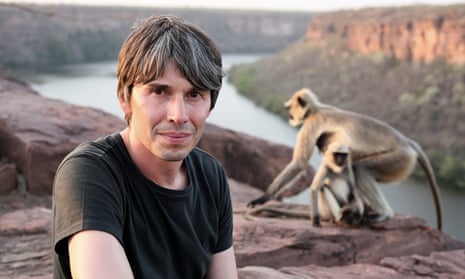Imagine discovering a new planet. You probably think you’d need to be a scientist with a sophisticated telescope, but that’s not true. When I presented Stargazing Live last year, we invited our viewers to look through a huge collection of images from Nasa on the website planethunters.org. Two people from Peterborough, Chris Holmes and Lee Threapleton, found a new planet by spotting its shadow passing across a distant star. We named the planet Threapleton Holmes B.
We live in the age of big data. It presents a new problem – we now have the ability to collect data (often photos) on everything, from deep space to the remotest parts of the Serengeti. What we don’t have, however, are enough scientists to study it. And that’s where you come in.
Citizen science is scientific research carried out by amateurs, often under the direction of professional scientists, but relying on you to get out there, ask questions and collect data.
In many ways, citizen science isn’t new – science has long relied upon self-taught researchers but now, thanks to the internet and new technology, the variety and scope of these possible projects have multiplied, drawing in a new generation of enthusiasts.
Citizen scientists really can be anybody. All you need to get involved is curiosity and access to a computer.
The real thrill of citizen science is being able to look at something no one has ever seen before, or discover something that no one knew about. I can try to describe that feeling, but it’s not until you experience it for yourself that you’ll understand the wonder. It’s why people become scientists.
It’s important to remember that there is so much still to find out – 25 years ago, we hadn’t discovered any planets around other stars and now we’ve found thousands.
On a different scale, I once met a man in New Zealand who decided to note one example of everything he could see in his garden. He found a new species of beetle. The number of undiscovered species out there is vast, and you can do great things just by studying your garden, seashore, or local park. Ask yourself: “How many people have been looking in detail at the natural world?” The answer is: not that many.
Becoming a citizen scientist will introduce you to the joy of discovery. Science is all about attention to detail, and finding joy in small things – that is how we spot something new. And once you realise that, you begin to understand how we know anything at all, from the age of the universe to how many stars there are. You will become a part of finding that out, and you might even make history.
Human Universe by Brian Cox and Andrew Cohen is published by William Collins. The television series is on BBC2 on Tuesdays at 9pm. To order a copy of the book for £18.99 (RRP £25), visit bookshop.theguardian.com
As told to Becky Barnicoat

Comments (…)
Sign in or create your Guardian account to join the discussion